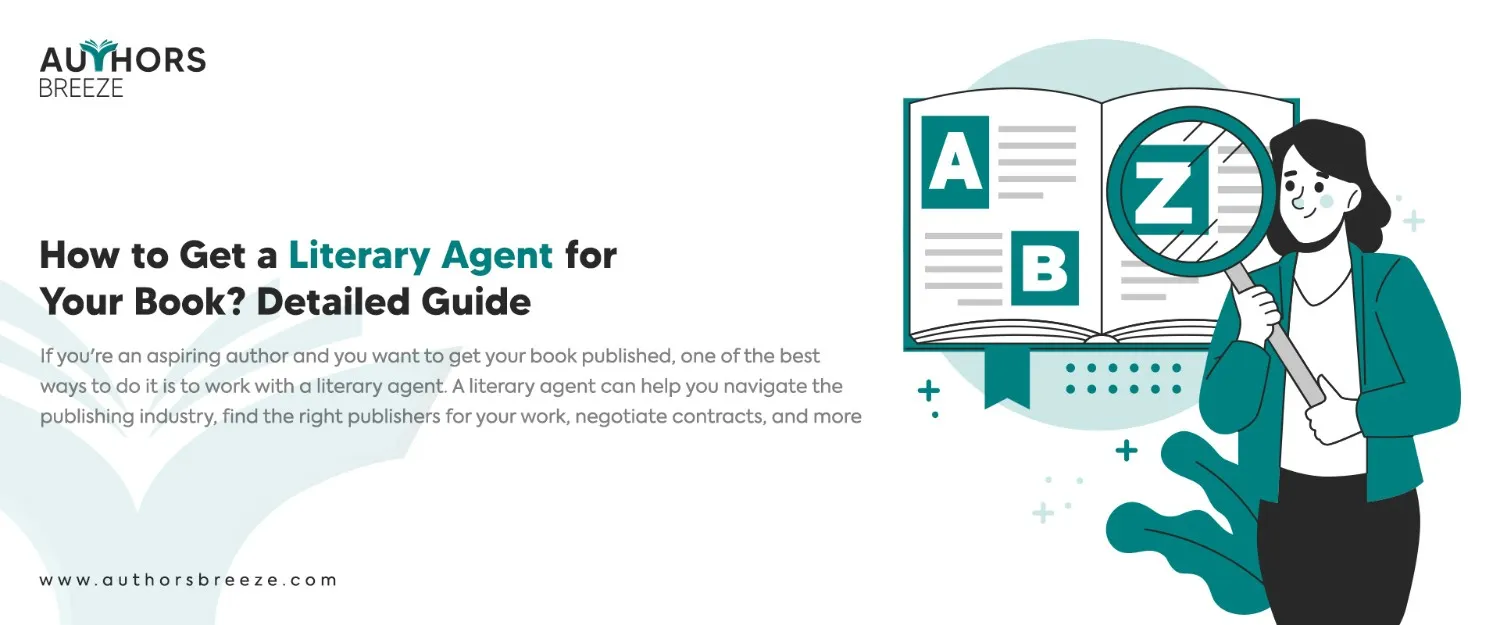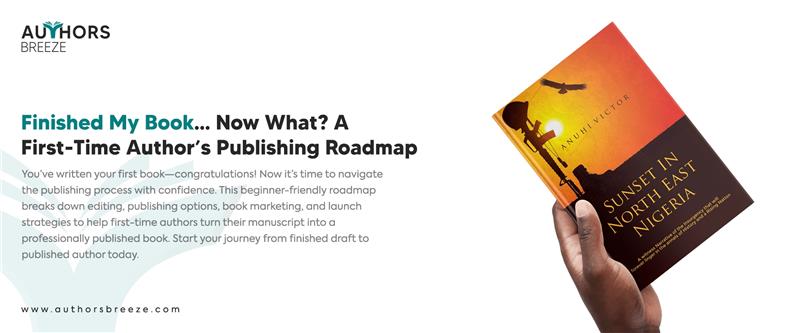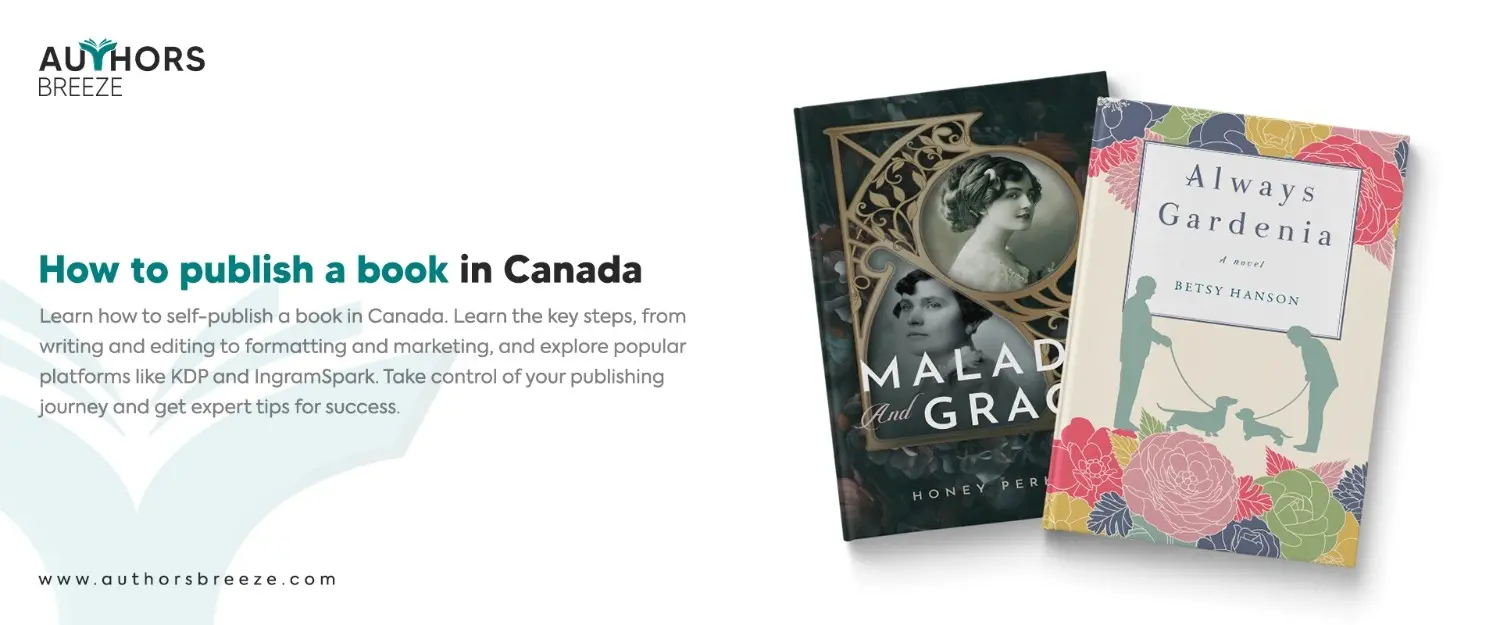Don’t Have Time to Read? Listen to this Article Instead!
As an author, you may have heard that having a literary agent can be instrumental in getting your book published. However, what exactly is a literary agent, and why are they so important? Let’s get to know.
You Cannot Afford to Miss Getting a Literary Agent for Your Book in 2025: Expert Tips and Strategies to Make Your Dreams a Reality!
Having a literary agent can be crucial for publishing your book since many book publishers will only consider manuscripts submitted through an agent. Agents also have the expertise and industry connections to help authors navigate the publishing process and maximize their chances of success.
What is a Literary Agent?
A literary agent is a professional who represents authors and their written works to publishers and other media outlets. They act as an intermediary between the author and the publishing industry. In addition to that, they work to secure book deals, negotiate contracts, and promote their clients’ work.
How Should You Prepare to Query Literary Agents?
Before you start querying literary agents, it is essential to do your research and prepare your materials. You can follow the below steps. They can help you to prepare to question literary agents.
Research Literary Agents
Start by identifying literary agents who represent books in your genre. You can find potential agents through online directories, literary agency websites, or by asking for recommendations from other authors. Make a list of agents you are interested in and gather info about their submission guidelines, client list, and recent sales.
Understand the Role of Literary Agents
Before querying, you must understand what literary agents do and how they work. It includes understanding their role in the publishing process, how they get paid, and what they look for in potential clients.
Prepare a query letter
Your query letter is your chance to make an excellent first impression with literary agents. Therefore, it should be a concise and professional letter introducing you and your book. Moreover, it should provide a brief summary of the plot. In addition, it should explain why you think the agent would be a good fit for your work.
Polish the Manuscript
Before you start querying, make sure your manuscript is in top shape. It means revising, editing, and proofreading your work to ensure it is free of errors and flows well. Moreover, consider hiring a professional book editing service or beta readers to get feedback on your manuscript before submitting it to agents.
How to Find the Right Literary Agent?
Once you have prepared your materials, it is time to find the right literary agent for your book. If you have a hard time finding a suitable literary agent for you, then do not worry. We are here to help.
Here’s how you can find the perfect literary agent:
Identify Agents Who Represent Your Genre
Not all literary agents represent all genres. Therefore, it is critical to identify agents who have experience and expertise in your particular genre. It will increase your chances of finding an agent who is a good fit for your work.
Evaluate Experience and Track Record
Look for agents with a proven track record of success in the industry, including recent book sales and established relationships with publishers. Moreover, consider their experience level and whether they have worked with authors at a similar stage in their career as you.
Examine Submission Guidelines
Each literary agent has their own submission guidelines. So it is essential to read them carefully and follow them strictly. Some agents may require a specific format or a number of sample pages. In contrast, others may prefer to receive submissions through email or regular mail. Be sure to tailor your submission to the agent’s specific guidelines to make the best possible impression.
Submit Query Letters and Manuscripts
Now that you have identified potential literary agents and evaluated their experience and submission guidelines, it is time to start submitting your materials. Don’t know how to present them? Let us show you.
Craft a Compelling Query Letter
Your query letter should be well-written and professional. In addition, it should make a strong case for why the agent should represent your book. Moreover, it should include a brief synopsis of your book, your writing credentials, and any relevant personal info that may interest the agent. You can also hire content writers. They can help you write the perfect query letter.
Prepare a Synopsis and Sample Pages
Many agents will request a synopsis, sample pages, and your query letter. The overview should briefly summarise your book’s plot and main characters. At the same time, the sample pages should showcase your writing style and voice.
Format the Manuscript
Before submitting your manuscript, properly format your book according to industry standards. It includes double-spacing, using a standard font such as Times New Roman or Arial, and including page numbers and a header with your name and book title. You can also consider a book formatting service if you want your book to be polished and perfect.
Send Submissions
Once you have prepared your materials, it is time to start sending out submissions. Follow the agent’s submission guidelines carefully. In addition, consider submitting to multiple agents at once to increase your chances of finding representation. Be prepared to wait for several weeks or even months for a response. Moreover, do not be discouraged if you receive rejections along the way.
Follow-Up and Communication with Literary Agents
After submitting your materials, following up and communicating effectively with literary agents is essential.
Understand the Response Timeline
Most literary agents will provide a response within a few weeks to a few months. However, response times can vary. Moreover, being patient and respectful of the agent’s time is key.
Follow Up on Queries
Suppose you have not received a response within the agent’s stated timeline. In that case, it is appropriate to send a polite follow-up email to inquire about the status of your submission. However, be careful not to come across as pushy or impatient.
Communicate with Agents
If an agent expresses interest in your work, it is vital to communicate clearly and promptly. Be prepared to answer any questions the agent may have about your book. Also, be open to getting feedback and revisions.
Respond to Offers of Representation
If an agent offers to represent you, take the time to carefully consider their offer and ask any questions you may have. It is also appropriate to let other agents who have your manuscript know that you have received an offer. It allows them to make a competing offer if they are interested. Ultimately, deciding which agent best fits your career goals and working style is up to you.
How to Navigate the Literary Agent Contract?
If an agent offers to represent you, you must navigate the literary agent contract before officially signing with the agency.
Understand the Components of a Literary Agency Contract
Literary agency contracts can vary in their specific terms. However, generally, they will include information about the agency’s commission rate, any other fees or expenses the author may be responsible for, and the length of representation.
Evaluate Agency Fees and Commission Rates
Literary agents typically earn a percentage of an author’s book sales, typically between 15-20%. Additionally, some agents may charge fees for expenses such as photocopying or postage. It is crucial to carefully evaluate these fees and commission rates to ensure they are reasonable and in line with industry standards.
Negotiate Terms
Suppose you have concerns about the terms of the contract. In that case, it may be possible to negotiate with the agent or agency. However, be aware that some terms may be non-negotiable. Moreover, it is essential to be respectful and professional during any negotiations.
Sign the Contract
Once you have evaluated the terms of the contract and are comfortable with them, you can sign the contract and officially begin your relationship with the literary agency. Be sure to keep a copy of the agreement for your records and communicate regularly with your agent throughout the publishing process.
Why do Authors Need a Literary Agent?
A literary agent can be an invaluable ally to authors looking to publish their work and build a successful writing career. You need a literary agent for several reasons:
Access to Publishers
Literary agents have established relationships with publishers and can often get their clients’ manuscripts in front of editors who may not accept unsolicited submissions from authors.
Negotiation
Literary agents are skilled negotiators who can help authors secure favorable book deals, including advances, royalties, and subsidiary rights.
Editorial Guidance
Many literary agents provide editorial guidance to their clients, helping them to polish their manuscripts and make them more appealing to publishers.
Career Development
Literary agents can help authors develop their careers by advising them on which projects to pursue. Moreover, they can introduce them to other industry professionals and help them navigate the publishing landscape.
In summary, you can get a literary agent by following the below steps:
- Research literary agents who represent your genre and have a good track record of selling books to publishers.
- Prepare a polished manuscript meeting the guidelines of the literary agents you plan to submit.
- Write a compelling query letter introducing your manuscript and highlighting your writing credentials.
- Submit your query letter and manuscript to literary agents, following their submission guidelines carefully.
- Follow up with agents who express interest in your work and engage in ongoing communication with them.
- Evaluate any offers of representation carefully, and negotiate the terms of your contract with your chosen agent.
FAQs
How Do I Find Literary Agents Who Are a Good Fit for Me?
Research is critical for finding literary agents who fit you well. Look for literary agents who represent authors in your genre. Moreover, check their submission guidelines to make sure your manuscript meets their requirements. You can also attend writer's conferences or join online writing communities to connect with agents from book writing services companies who are looking for new talent.
What should I include in my Query Letter to a Literary Agent?
Your query letter should include a brief summary of your manuscript, data about your writer's background, and any relevant publications or awards. Be sure to personalize your query letter for each agent you submit to and follow their submission guidelines carefully.
How long does it Typically Take to Hear Back from a Literary Agent?
Response times can vary. However, it is not uncommon for it to take several weeks or even months to hear back from a literary agent. Some agents may not respond at all if they are not interested in your manuscript. Suppose you have not heard back after a reasonable amount of time. In that case, following up with the agent is generally acceptable.
Should I be Wary of Literary Agents who Ask for Money up Front?
Legitimate literary agents should never ask for money upfront. Moreover, they earn their commission from the author's book sales, not from the author themselves. Therefore, if an agent asks for money upfront for any reason, it is likely a red flag. In addition, the author should proceed cautiously or look for representation elsewhere.
Conclusion
A literary agent is crucial for authors who want to succeed in the book publishing industry. However, it can be challenging to find the right one. Therefore, it is essential to do your research and understand your needs. With our detailed guide, we hope you now know how to find and approach the right literary agent for you.
Well, if you want your book to be the next big thing, you should take advantage of book marketing services offered by Authors Breeze. We can enhance your book’s chances of success to a hundred percent.






